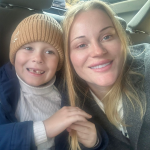Autism and Bipolar Disorder
Although autism and bipolar disorder are distinct conditions, they share more in common than you might expect. Understanding the overlap between these disorders could provide valuable insights for effective therapy.
Defining Autism and Bipolar Disorder
- Autism is a neurological disorder that manifests in unique ways, influencing how a child moves, thinks, and behaves.
- Bipolar disorder, also known as manic-depressive psychosis, is a mood disorder characterized by significant fluctuations between excessive energy (mania or hypomania) and severe depression.
Manifestations of Autism and Bipolar Disorder
- Autism: This diagnosis is often associated with intellectual challenges and varying degrees of speech dysfunction. Autistic individuals may need tailored support to navigate and make sense of the world.
- Bipolar Disorder in ASD: This combination presents more extreme symptoms. Children may exhibit cycles of apathy and manic energy, often with tendencies that could risk their safety. These mood swings range from hypomania to complete inactivity and emotional decline.
Prevalence and Causes
Studies indicate that approximately 27% of individuals with autism exhibit symptoms of bipolar disorder to varying degrees. Researchers suggest that a genetic predisposition likely contributes to the development of bipolar disorder in individuals with ASD.
Key Symptoms in Autistic Children with Bipolar Disorder
Behavioral patterns in autistic children with bipolar disorder include:
- Periods of overabundant energy alternating with severe isolation and depression
- Manic tendencies with unusual and persistent focus
- Extremes of excessive activity or marked passivity in interactions
- Uncontrolled, repetitive movements of the head and limbs
- Emotional extremes, from superhuman bursts of energy to deep depressive episodes
During manic phases, a child might feel an extraordinary sense of enthusiasm and physical energy, which can be directed toward various goals—positive or negative. In depressive phases, the same individual may feel the urge to withdraw completely, seeking solace in isolation.
Treatment for Autism and Bipolar Disorder in Children
Traditional therapeutic approaches often combine techniques for managing both ASD and bipolar disorder. While these methods help manage symptoms, stem cell therapy offers a groundbreaking alternative with significantly enhanced outcomes.
Stem Cell Therapy for Autism and Bipolar Disorder
Stem cell treatment works from within by repairing brain cells at the cellular level, addressing the root causes of these disorders. Unlike conventional methods, which primarily manage symptoms, this therapy offers deep, lasting benefits:
- Reduction or elimination of symptoms
- Slowing or halting of the disease’s progression
- Improvement in both physical and mental capabilities
After undergoing stem cell therapy, many children experience increased engagement in daily life, better communication, and improved emotional stability.
Explore cutting-edge treatment at the Mardaleishvili Medical Centre and allow the restorative power of stem cells to address two conditions simultaneously
Autism Treatment Center Videos
Autism treatment with own stem cells
Cord blood association congress
International Quality Crown
Autism Treatment Reviews
Autism treatment with own stem cells
The story of Alessandro (6 years old)
Autism Patient Testimonial - Stem Cell Treatment
Clients Testimonials

Review by Anastasia, mother of Yusup (8 years old) Read More

Feedback from Nathalie, mother of Andre (9 years old) Read More

Feedback from Yulia, mother of Emily (7 years old) Read More

Feedback by Everita, Katrina’s mother (5 years old) Read More

Feedback from Igor, David’s father (12 years old) Read More












